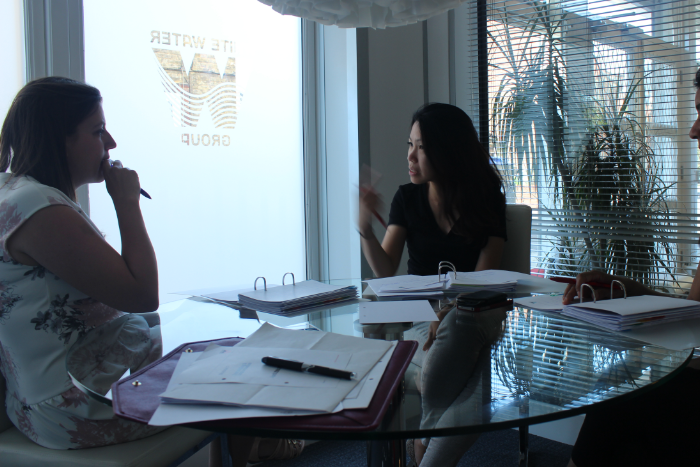Women enter the workforce with a high confidence level after graduating University in their early twenties. They are usually in their first job because they are the best: they have the highest academic grades and have passed various interview processes with flying colours to land the job. In their first role, there is bound to be a level of learning, whether it is professional exams (accountants, lawyers, doctors), managerial training or gaining experience on the job. Statistics show women do well at this level. Most young women at this stage are focused on their job and are doing well – they want to go for promotion, learn all they can quickly, because for many they are already aware their focus may change in a few years time. A new layer of complexity emerges, however: the job gets a bit tougher and it is no longer just about getting accurate results. The parallel with simple academic success starts to diverge. This is all about coaching and adapting to change with some calculated risk-taking. For instance, women need to find their way through the labyrinth of career progression. This labyrinth takes on many shapes and paths and it is not until a woman understands the unwritten rules driven by company culture that she will discover what type of career path takes her to the next level. When women reach their late twenties and early thirties, they are still generally career oriented and pushing on. However, often internally, this is when they begin to ask significant questions about their career such as:
- Do I compete or not to move on in my job?
- Do I decide to act like a woman at work, or to mimic a man’s way of working to get on?
These are essential questions around a woman finding her identity at work and deciding how to act accordingly. Identity and working identity is key at this stage. This is the level where women often need to give themselves permission to be authentic. This is when women will need to discover their own personal style, feel good about it and develop a management style that reflects their personality. Beyond this, women need to be able to understand the company culture and what it takes to be successful within that organisation. It is unlikely that a company would invest in coaching at such a junior level, but by the time this is offered to women at a certain level of seniority, the momentum – and the women – have been lost. In our research, senior women saw that they could have progressed faster if they had developed skills earlier, which is why we have designed ‘The Young Women’s Talent Club’ – an intensive bootcamp where likeminded young women can learn the secrets of success and get the support, mentoring and follow up that will get them to the next level. Come and join our band of intrepid young women taking their future into their own hands over the next few months. Spread the word and grab yourself a place!





